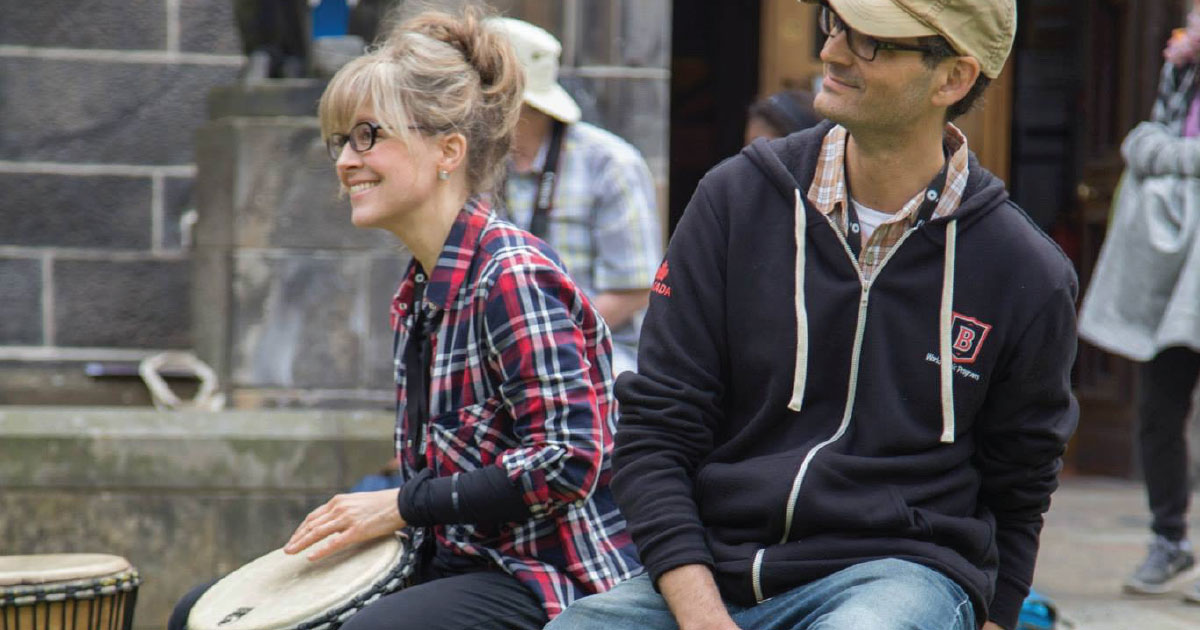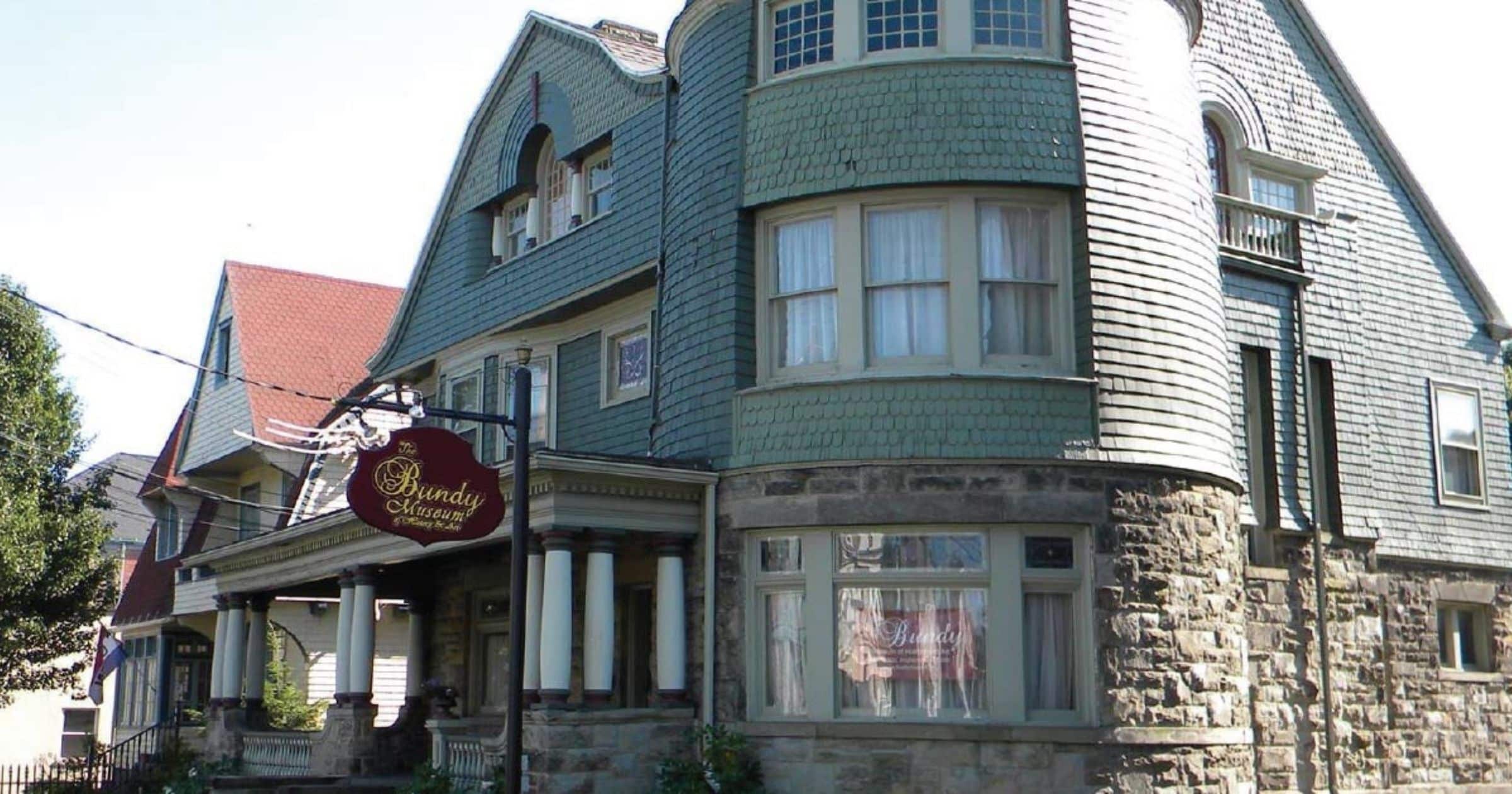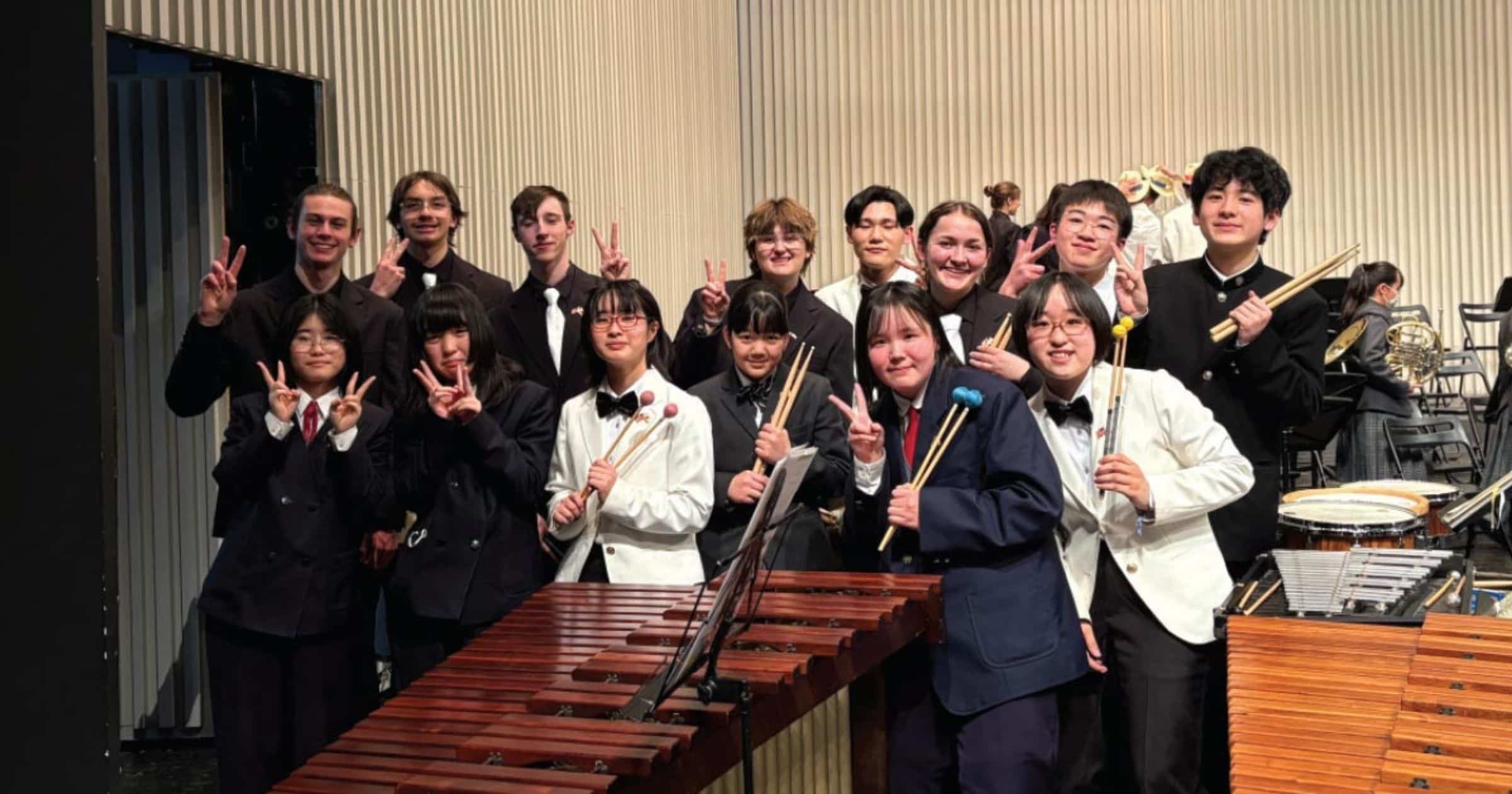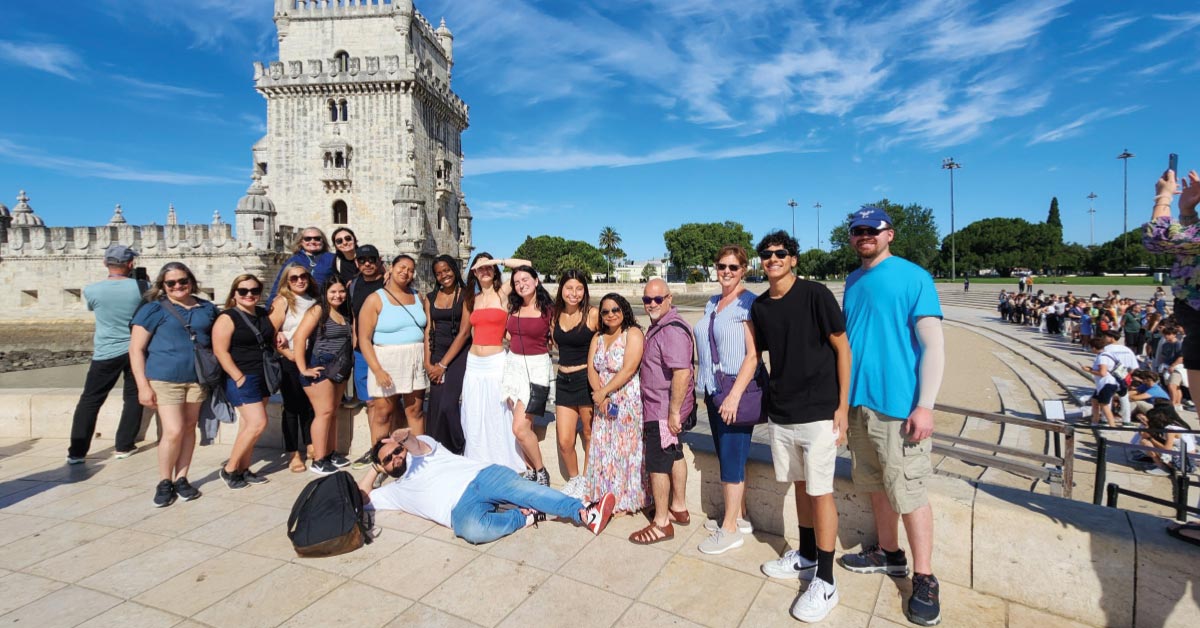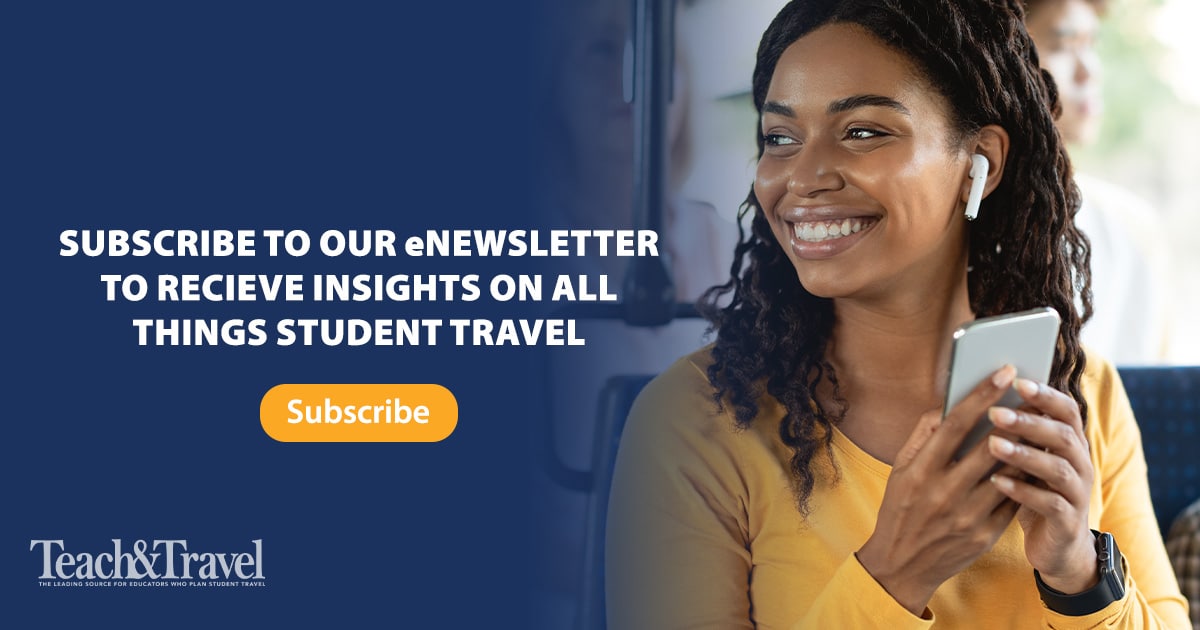“Running a successful music program takes an entire community,” say Adrian Dyck and Paige Freeborn, longtime life and musical partners who, in 2004, took up the challenge of creating a unique music program for Brockton School, an International Baccalaureate School located in North Vancouver, British Columbia.
The result was the school’s now acclaimed and internationally recognized World Music Program (WMP), which features eight different performing ensembles, including an alumni ensemble. Dyck and Freeborn serve as co-directors of this unique program that uses marimbas to teach students music theory and practice, while developing community-mindedness and compassion. The students, who may enter the program at grade six, have performed all over the world and in every concert hall in Vancouver.
Dyck and Freeborn are grateful for the opportunity to work with the extraordinary students, faculty, staff, and parents who make up the Brockton School community, and support this inclusive and diverse program. “We wish we could thank every teacher, colleague, parent, student, grandparent, extended family member, school administrator, community planner, advisor, and instrument maker by name,” they say.
We took a moment to talked with the husband and wife team, and gained insights about the goals, initiatives, and achievements of the program.
Tell us about the WMP and why you created it.
We both came out of the classical music world, which we experienced as competitive, and not always inclusive. We had always wondered how a “high performing” music program could be more inclusive and center compassionate collaboration, so when the founding families of Brockton School approached us in 2004 to start up an “alternative” music program, we thought about how music education could strengthen compassionate community engagement. In these early discussions, we articulated the WMP’s mission statement: “To create a compassionate community consciousness through the act of co-creating and performing music together.”
How has the program evolved since its founding?
Over the years, the program has evolved significantly. In the early years, we had a limited budget for the program, so we used anything we could find to explore the musical landscape with students, including body percussion, vocals, an old piano, garbage can lids, brooms, half a bongo set, a cowbell, and a few other odds and ends students would bring in from home. The co-creative process that emerged helped students discover identity, belonging, purpose, and agency through musical expression.
Fast forward to 2009, and we received an invitation to perform at the International Society for Music Education (ISME) conference in Beijing, China. The ISME, which includes more than 80 countries, is affiliated with UNESCO and is considered one of the most influential global organizations for music education. We sent in an audition tape of a piece our students had co-composed called “The Gratitude Project,” which featured multiple gratitude statements housed within a minimalist musical structure, including drums, vocalists, a couple of violins, and handbells. We ended up playing this half-hour piece to a sold out audience at the China National Convention Center, and one of the most poignant moments was after the show, when our students were speaking with educators from around the world. With the help of translators, audience members expressed that they had felt the students’ gratitude and compassion, even though they could not understand all of the words that were spoken and sung.
What have been some of your challenges and successes?
One of the biggest challenges we faced in the beginning was where to find music for our groups, as there were few notated arrangements for marimba ensembles of our size. Back in 2008, we began arranging music for the ensembles, and in order to keep our program as inclusive as possible, we began creating what has become a massive database of differentiated resources for students.
Creating music for the WMP has been a labor of love, involving a lot of learning and experimentation on our part, and we share arrangements with other schools from around the world.
How do students qualify for the WMP?
All students are welcome to join, and the most important thing is their willingness to cultivate strong communication, collaboration, and self-management skills, and show themselves and one another compassion throughout each and every challenge.
Do you have any trips or tours that are particularly memorable?
Every tour is memorable, and we are extremely grateful for Ellison Travels & Tours for supporting our most successful endeavors! It is hard to put into words the level of care and attention that Ellison provides, and for us this has included not just the logistical details of our travel itinerary, but holistic conversations about how we can support the mission of Brockton School throughout our tours.
This includes creating connections to our school’s curriculum and opportunities for students to learn about equity, diversity, inclusion, and decolonization.
When we traveled to Austria, Germany, and the Czech Republic, students visited concentration camps, Berlin’s Holocaust Memorial, the Berlin Wall, and other cultural sites. In Austria, prior to a fundraising concert in support of descendants of the Chernobyl disaster, students learned about the history of this disaster, connecting their learning in interdisciplinary ways. Here in Canada, we are starting to come to terms with the horrifying impact of the violence perpetrated against Indigenous Peoples.
As a part of our school’s commitment to Truth and Reconciliation, we are connecting with local Indigenous artists to learn how we can more actively contribute to Truth and Reconciliation through music education. Needless to say, our mission goes beyond the notes we play on a stage. Our hope is to foster awareness and understanding in our students, through the universal language of music, so they will help create more compassionate communities.
This story originally appeared in the May 2023 issue of Teach & Travel.

